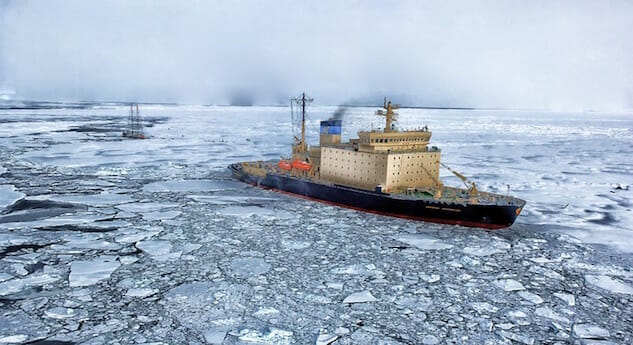Arctic Ice Loss Could Lead to Far-reaching Implications

Introducing Endless Mode: A New Games & Anime Site from Paste
Arctic ice has reached an all-time low in what scientists consider to be a sign of global warming.
The National Snow and Ice Data Center reported last month’s winter peak for Arctic sea ice area at 5.57 million square miles— 35,000 square miles less than the 2015 record (which is approximately the same size as the state of Maine).
This season’s unusually warm temperatures in the Arctic have contributed to the record ice melt. The North Pole experienced a 50-degree temperature surge above the average during the last week of December.
“It’s a key part of the Earth’s climate system and we’re losing it. We’re losing the ice in all seasons now,” said Mark Serreze, director of the National Snow and Ice Data Center.